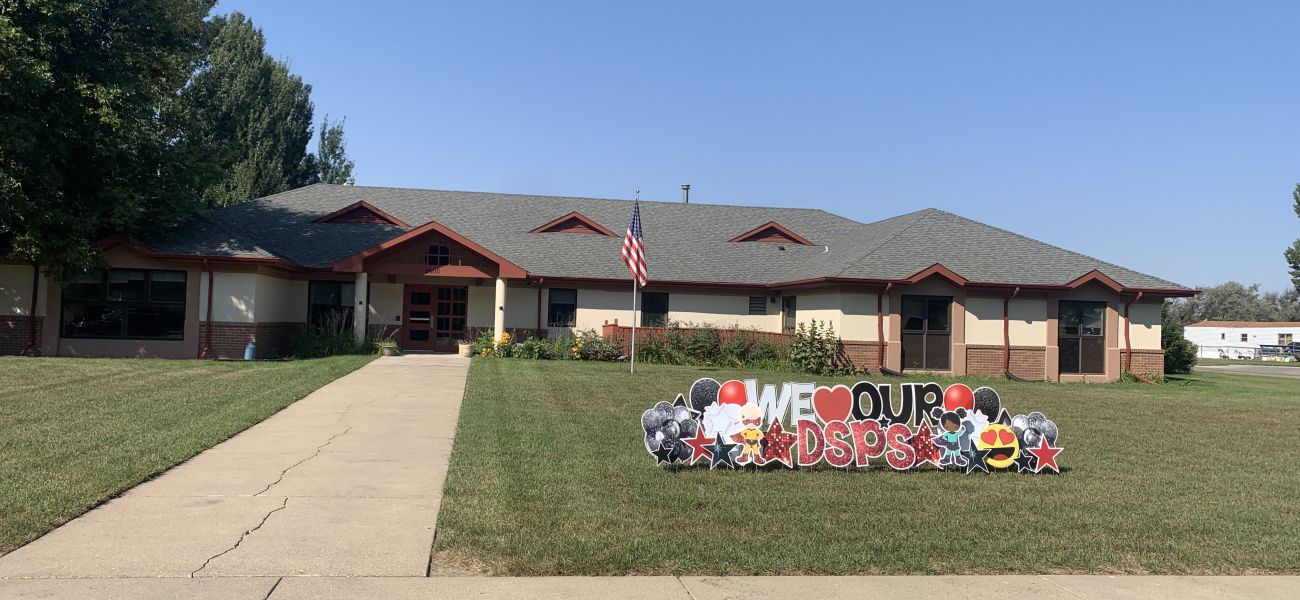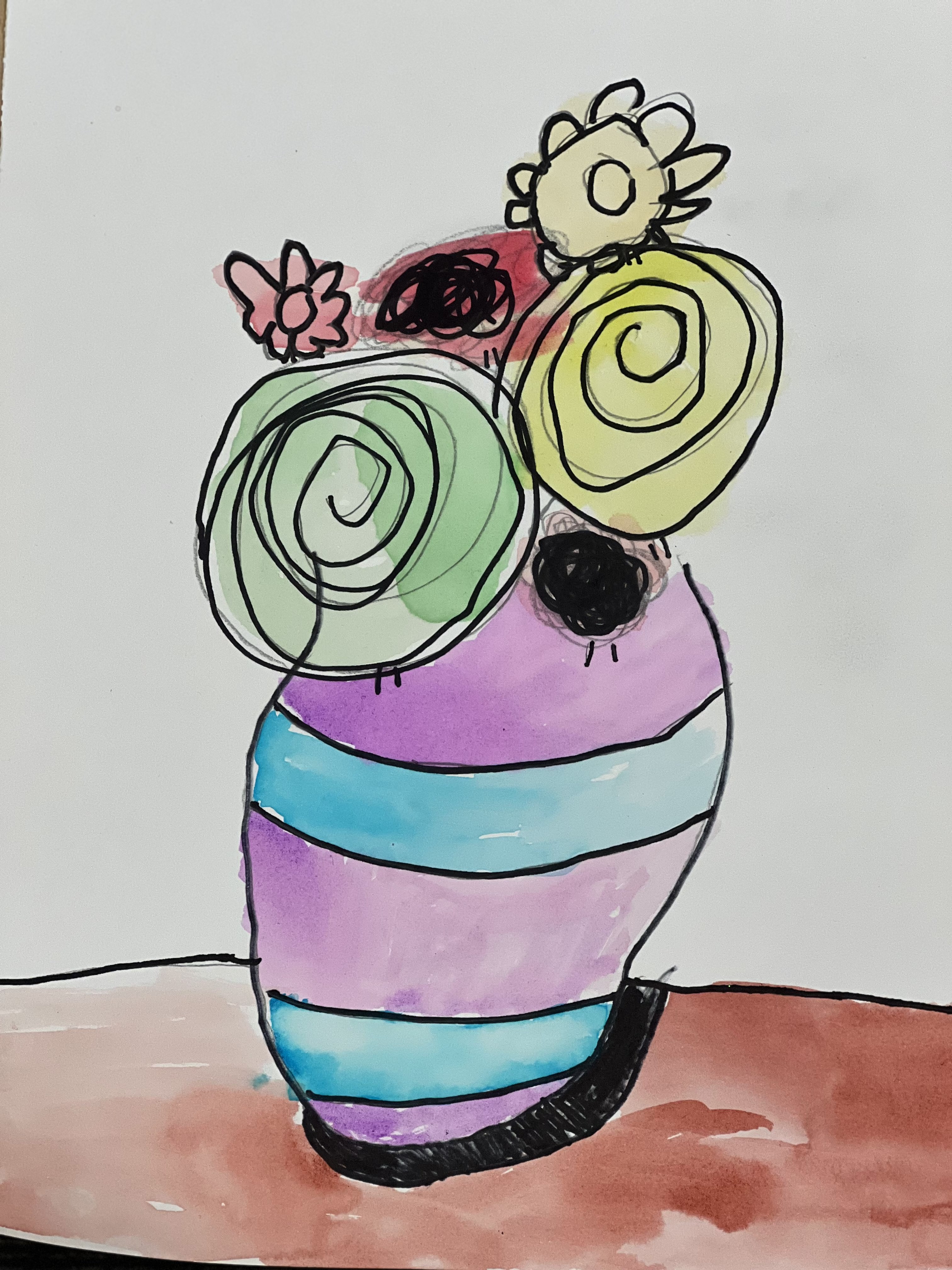Pride Manchester

Artwork by the Kids!
Pride Manchester House
Pride Manchester House, founded in 1989, is an eight-bed psychiatric residential treatment facility for children, ages 5 to 13 years, who are residents of North Dakota and are diagnosed with emotional disturbance. Lengths of stay vary according to the needs of the child.
Mission Statement
Empowering children to heal, grow, and thrive through trauma-informed care.
Philosophy
Pride Manchester House Philosophy
Vision Statement
To heal and empower children, ages 5-13, through compassionate, trauma-informed care that fosters resilience, dignity, and hope. We are dedicated to supporting their emotional, behavioral, and psychological well-being, guiding them toward a successful reintegration into their communities. Through individualized care and collaboration with families and partners, we help children develop essential life skills, build resilience, and create a foundation for lasting success and well-being.
Core Values
Dignity: We respect every child, family, and team member, recognizing their inherent worth and resilience.
Trust: We create a safe environment through transparency, consistency, and reliability.
Teamwork: We collaborate across disciplines to provide integrated, holistic care.
Quality Services: We use evidence-based practices to deliver individualized, trauma-informed care.
Empowerment: We help children and families build resilience and confidence for successful reintegration.
Community Connection: We partner with local resources to ensure a smooth transition and sustainable success.
Outcomes
In 2024 Pride Manchester House:
- Provided treatment and care to 50 youth,
- Diverted 18 youth from residential placement and assisted in helping them remain in the community.
- Conducted 240 outreach contacts to families and youth.
Referrals
Referrals to Pride Manchester House generally come from the child’s parent(s), school districts, county social service agencies, or tribal entities.
Admission Criteria
Admissions to Pride Manchester House are ongoing, with the following criteria:
- Significant functional impairment: Children with an average range of intellectual ability, diagnosed with an emotional disturbance such as:
- Post-traumatic stress disorder
- Reactive attachment disorder
- Psychotic disorders
- Mood disorders
- Impulse control disorders
- Pervasive developmental disorders
- Autism
- Treatment benefit: Children who can benefit from treatment and evaluation in the current facility, as determined by the Level of Care assessment and the Behavioral Health Care Navigator.
- Safety in a restrictive setting: Children who require a more restrictive setting after less restrictive options have been exhausted and can be safely maintained in that setting.
- Individual Education Plan (IEP): Children with an IEP where serious emotional disturbance is the primary disability for treatment at Manchester House. If the child does not have an IEP, he or she is in need of further evaluation in order to determine the best way to meet the child’s needs in order to successfully return to the classroom.
Screening and Level of Care Determination
Screening for the appropriateness of Psychiatric Residential Treatment Facility is managed by an out of state vendor. The state of North Dakota has contracted with Maximus to conduct Level of Care assessment in order to identify the appropriate level of care required, including residential treatment options, and assists in ensuring that less restrictive alternatives have been exhausted before considering a more restrictive placement.
Treatment and Evaluation
Treatment and evaluation are based on a child's individual needs as well as strengths. Basic services include:
Residential:
Pride Manchester House is staffed 24 hours a day. When children are not in school, they are involved in counseling sessions (individual and family), leisure activities, therapeutic groups, and various community involvements.
Educational:
Bismarck Public Schools Special Education Unit provides an on-site education program. When appropriate, children may be considered for placement in public schools.
Clinical:
Pride Manchester House has access to other staff and programs provided in the community. Psychologists and psychiatrists, as well as a variety of therapists are available to meet with children and their families. An emphasis on transition and after-care planning for the child and his/her family is maintained through the treatment stay.
Universal Application for Services
Children’s Treatment Services Level of Care (LoC)
Determination Continued Stay Review (CSR)
Multi-Party Authorization to Disclose Information
Children’s Treatment Services Level of Care Determination - Attestation
Staff
Team Commitment to a Trauma-Informed Culture:
At Pride Manchester House, team members are deeply committed to creating a trauma-informed culture that prioritizes safety, trust, and empowerment for the children in our care. We recognize the profound impact that trauma can have on a child's development and well-being, and we work collaboratively to help children acquire the skills and behaviors necessary to thrive in their home, school, and community environments.
Therapeutic Environment:
Pride Manchester House professionals provide a comprehensive therapeutic environment that is rooted in trauma-informed care practices. This means that all interactions, interventions, and treatment plans are designed with a deep understanding of how trauma affects a child's emotional, psychological, and behavioral health. By creating a safe and supportive atmosphere, we help children process past experiences and develop healthier coping mechanisms.
On-Site Staff:
The on-site staff at Pride Manchester House includes a dedicated team of professionals who are trained in trauma-informed care and who work together to provide holistic support for each child. The team includes:
- Director: Leads the team with a trauma-sensitive approach, ensuring that all staff are aligned with trauma-informed care principles and creating a safe, nurturing environment.
- Treatment Coordinator: Oversees individualized treatment plans that are trauma-focused, ensuring that care is aligned with each child's unique needs and background. Provides individual and group therapy that incorporates trauma-informed therapeutic techniques, focusing on healing and resilience.
- Registered Nurse: Provides medical care by administering medications, monitoring vital signs, and assessing the children’s physical and mental health. They collaborate with a multidisciplinary team to develop care plans, assist in therapeutic activities, and manage health crises. Additionally, they educate children and staff on health practices and maintain accurate medical records. The RN plays a key role in supporting the emotional and physical well-being of children in treatment.
- Case Managers: Support children and families by coordinating services, helping to ensure that all aspects of a child's life are considered in the treatment process. Case managers also assist with preparing children for transitions, ensuring that they have the skills and emotional support to success in less restrictive environments or back in their communities.
- Direct Support Professional Supervisor: Oversees and supports the DSP staff, ensuring they implement strategies and techniques to help children manage their emotions and behaviors effectively. The supervisor helps train and guide the team in using therapeutic interventions, coordinates group activities and outings to promote social skills and emotional growth and ensures the safety and well-being of the children. They also monitor staff performance, provide support during challenging situations, and assist in maintaining a structured, therapeutic environment.
- Direct Support Professionals (full-time and part-time): Provide day-to-day care and support, employing trauma-sensitive strategies to build trust and rapport with the children.
- Administrative Assistant: plays a vital role in keeping the facility running smoothly. handling a wide range of tasks such as scheduling appointments, managing communications, maintaining records, and ensuring that necessary paperwork is up to date. Often the first point of contact for families and staff, they support the team by coordinating meetings, assisting with billing and documentation, and helping with day-to-day operations.
- Cook: Ensures that meals are prepared in a safe and nurturing environment, offering healthy food that supports the children's physical and emotional well-being.
- Teachers: The education at Pride Manchester House is provided by Bismarck Public School System (BPS). The teachers and paras support the children's educational needs while incorporating trauma-informed practices into the classroom to help children engage and succeed academically.
- Additional Support
In addition to our core staff, we also have a network of volunteers, mentors, and foster grandparents who play an integral role in providing additional emotional support and stability. These individuals are trained to work within the trauma-informed framework and offer personalized attention to the children, further fostering a sense of community, belonging, and safety.
Costs
Costs for room/board and therapeutic services vary. Payments for these services are made through Medical Assistance and private insurance. Special education and services are paid through tuition agreements with the child's local special education or regular education district.
Additional Resources
Children’s Treatment Services – Level of Care
North Dakota Psychiatric Residential Treatment Facilities (PRTF) Licensing
Contact Admissions
Michelle A: 701-223-5600 ext #256
Olivia M: 701-223-5600 ext #255
General Information
Main Contact Line: 701-223-5600
Email: info@prideinc.org
Executive Director
Jay Meier: 701-223-5600 ext #251





